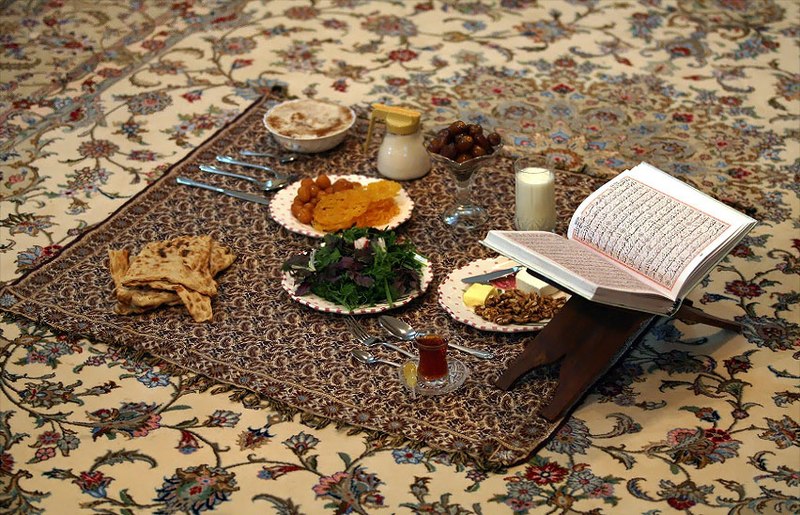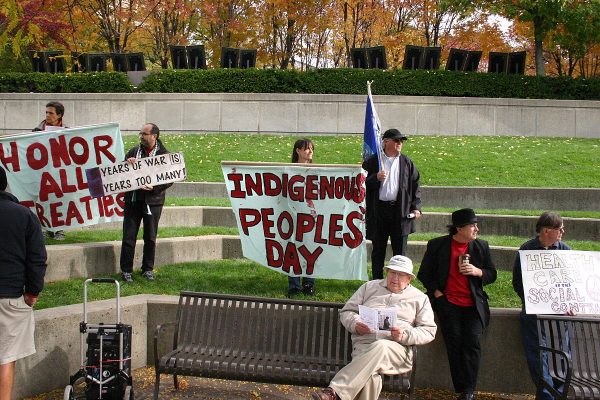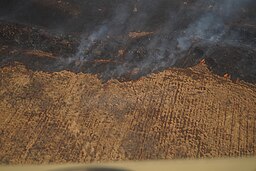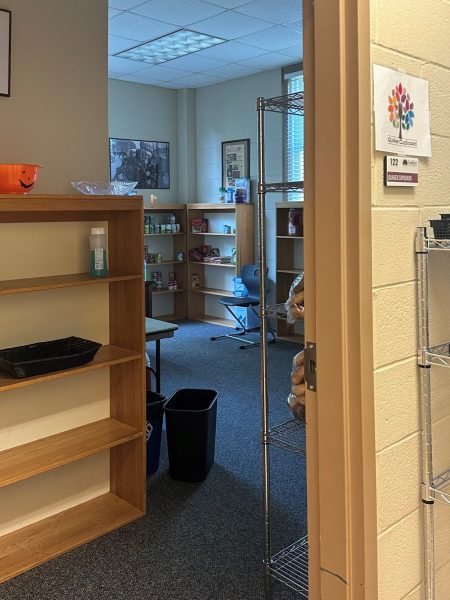Recognizing Ramadan
Respecting and uplifting our Muslim friends in their celebration
During the month of Ramadan, an iftar meal, like the one pictured here, is eaten to break the fast once the sun sets.
Ramadan, which means “burning heat,” is a month-long holiday observed by Muslims since the seventh century. Many celebrate it through selfless deeds, prayer and fasting, typically from sunrise to sundown. This year, in North America, Ramadan started on the evening of March 22 and will last until April 20.
“It’s a time of reflection and renewal,” said Zhihong Chen, a Muslim and an associate professor of history at Guilford. “I take Ramadan as an opportunity for self-reflection, self-examination, and to renew my connection with the divine, the community.”
Guilford College has many Muslim students, and while it is important to show respect towards all religions year-round, there are special considerations to be made during Ramadan. Especially for those who are not fasting, there are a multitude of ways to be considerate and supportive toward Muslim classmates and others who are members of the Guilford community.
One way to support Muslim friends is to simply be aware of the fast, and for it to be celebrated and recognized by the College.
“The best way for friends and classmates to respect us during this time is for them to know it is happening,” said Guilford senior and criminal justice major Sara Togol. “Guilford could have a celebratory day to inform students and the community about Ramadan, making it easier for Muslim students to feel comfortable in this community.”
The College already has taken many steps to support Muslim students. For example, the Interfaith Council hosts off-campus fast-breaking meals and provides a prayer and reflection room in the Friends Center at the Campbell House. According to Meagan Holleman, Guilford College’s multi-faith coordinator, the next fast-breaking meal, called iftar, will be on April 18 at Nazareth’s, a Palestinian-owned restaurant, and can be attended by Muslims and their invited guests (click here to register).
It is also important to be aware of how the fast works. Those who are fasting abstain from eating or drinking between sunrise and sunset. Before the sun rises, a meal called suhoor is eaten, which often consists of foods like fruit, rice, oatmeal and chicken or fish. Once the sun sets, a more communal, social meal called iftar begins with the consumption of three dates to break the fast.
“We gather during iftar time to eat together, pray, share our laughter, special moments and memories, as we get closer as a family,” said Guilford first-year and cyber security major Jana Bassalat.
“The month of Ramadan represents a sense of solidarity,” said Togol. “It entails getting up at the same hour to dine and pray with my family, allowing us to spend more time together. Muslims are encouraged to welcome friends and neighbors during these meal times.”
However, according to Chen, fasting can often be challenging for Guilford students who are Muslim, especially if they live on campus. The cafeteria is closed during suhoor and iftar, meaning that students do not always have access to fast-breaking meals.
Bassalat is just one student who struggles with the cafeteria’s schedule, saying, “the cafeteria food is not Halal, so it is forbidden to me to eat, and the cafeteria hours do not match the iftar time.”
“If you want to help a Muslim friend, just prepare a morning meal for them,” Chen said. “That will be very meaningful—a packaged meal for the morning suhoor.”
Additionally, respecting Muslims during Ramadan means understanding and celebrating the variety of the Muslim community. Islam is a very diverse religion; Muslim people come from a wide range of regional, ethnic, linguistic and racial backgrounds, meaning that Ramadan looks different for everyone. Even the dates of the fast are different across the world, since the lunar calendar varies based on longitude and the international date line.
“Sunnis break their fast when the sun sets but there is still some visible light outside, while Shias wait until it is completely dark to break their fast,” said Early College sophomore Sarah Zaraf.
Another way to show solidarity and allyship with the Muslim community is to be empathetic toward those observing the fast.
Zaraf said that those not observing the fast can fast a day or longer in solidarity, but that even basic practices, such as trying to avoid offering food or drinks to those fasting, is a way to show support.
“Ask a Muslim student, ‘How are you doing? Is there anything I can do for you?’” Chen advised. “If somebody asks you how you’re doing, that could mean so much.”











